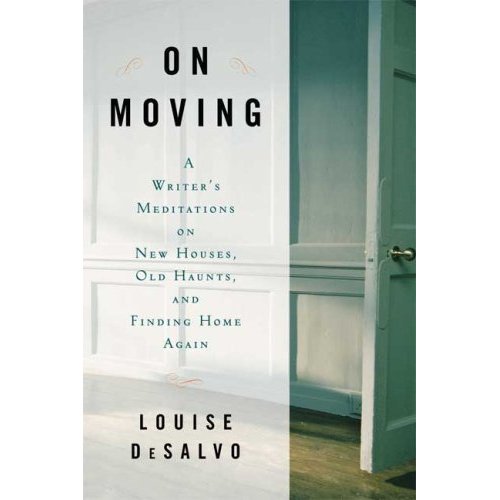A celebrated memoirist calls the bluff of a parent who laments that he doesn’t have time to write:
 He was across the street raking leaves, and I went over to say hello one a cool autumn day, to take a break from my work, writing about my father’s life during World War II.
He was across the street raking leaves, and I went over to say hello one a cool autumn day, to take a break from my work, writing about my father’s life during World War II.
“How did you write when you had kids?” he asked me. “I have this book I want to write, and I can’t get anywhere. All the housework and time with the kids leaves me no time for writing.”
Bob is a work-at-home dad. He’s told me about the book he’s burning to write about raising kids with his partner, filled with unconventional wisdom, hard-earned.
Your kids are at school now. What are you doing raking leaves?
Maybe I should have sweet-talked him about how, yes, it’s tough to get to your work, blah, blah, blah. But I figured he wanted to know how I did it, so I told him how I kept at my writing when my kids were growing up, and I gave him my “rules” that made it possible.
Rule Number 1: As soon as the kids are off to school, get to your desk. When they’re babies, as soon as they’re in their cribs, or in their rooms, for a quiet time or a nap, get to your desk. Don’t do housework. Don’t make telephone calls. And for goodness sake, don’t do e-mail, go on Facebook, or look at Oprah. Don’t waste the precious little time you have. You can shop, run a household, cook, when the kids are around, and they can help you. Bob’s kids love raking leaves – they’d raked mine for money. But there he was, raking, pining for his work, which meant he was choosing to rake, not to write.
Rule Number 2: You don’t need “blocks of time.” Lots of biographies describe writers going to their studies for the entire day. Nice, if you can do it. Most of us can’t, or wouldn’t want to. Many writers who aren’t writing tell me they need “blocks of time.” When I ask if they write in snippets of time, they say no. When my kids were young, I could get in three hours of work a day, no matter what. Everyone can get in three hours of work a day. That’s all Virginia Woolf worked; that’s all the time she took to write. Sometimes, for me, it was an hour here, fifteen minutes there. When they were babies, I used their nap time and two hours after they went to sleep to write. I took my work to wading pools, doctor’s offices, the park. I didn’t push my kids on a swing. They were there to play, not me.
Rule Number 3: You’re not a taxi cab driver. The suburbs are wonderful, sure, but also hellish places for parents, especially if you feel bound to ferry kids from one activity to another. I tried it. I died inside. Each of my kids got one ride a week, no more. Sure, they got angry. But they figured out how to get places. Like walking. Or riding their bikes. And I didn’t go to every one of their games. That was their thing, not mine. There’s nothing sadder than seeing talented, dying-to-express-themselves parents sitting around doing nothing while their not-so-talented kids dance, play soccer, or twirl around on gym equipment. If you have to go, bring your work and do your work. Ignore your child. Wave occasionally.
Rule Number 4: You have a right to do your work even though you’re not getting paid for it (yet). Writing, as Audre Lorde said, is not a luxury, surely not for the person yearning for self-expression. The way I look at it, you can either write, or you can get angry, feel ripped off, or worthless. Better that you write. And when you get paid, even a pittance, invest the money into your growing business. Think of yourself as a start-up company. Keep ten percent of the profits for yourself. Spend the rest to replace your labor to give you more time. To write.
Rule Number 5: You’re the grown-up. Your life is yours, not your child’s. This is the way Europeans run their households. This is the way I ran mine. My needs had to be met. First. Selfish? Yes. “She sacrificed her life for her children” is not something I want written on my tombstone. A parent’s life is a terrible thing to waste.
Rule Number 6: Touch your work every day. Live by Anne Lamott’s father’s rule: Work every day, and finish things.
Rule Number 5: Call it work, not writing. No one I knows cares if you’re writing. That’s why you have to call it work. Because that’s what it is. Your work. Your life’s work.
Louise DeSalvo is the Jenny Hunter Distinguished Scholar for Literature and Creative Writing at Hunter College. Her most recent book is On Moving. Her other titles include the memoir Vertigo, which received the Gay Talese award; Crazy in the Kitchen: Food, Feuds, and Forgiveness in an Italian American Family, which was named a Booksense Book of the Year; and Writing as a Way of Healing: How Telling Our Stories Transforms Our Lives. DeSalvo is also a renowned Virginia Woolf scholar.
Read Full Post »

 He was across the street raking leaves, and I went over to say hello one a cool autumn day, to take a break from my work, writing about my father’s life during World War II.
He was across the street raking leaves, and I went over to say hello one a cool autumn day, to take a break from my work, writing about my father’s life during World War II. Gretchen Rubin
Gretchen Rubin

 Even if you waste the entire day running errands and responding to “fire drills,” as my husband calls last-minute, drop-everything requests (which for me might range from picking a sick kid up from school to reading page proofs), you can redeem the day if, at some point – for fifteen minutes or an hour – you write.
Even if you waste the entire day running errands and responding to “fire drills,” as my husband calls last-minute, drop-everything requests (which for me might range from picking a sick kid up from school to reading page proofs), you can redeem the day if, at some point – for fifteen minutes or an hour – you write.
 See
See 